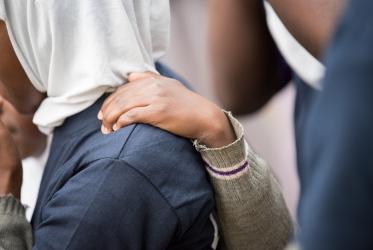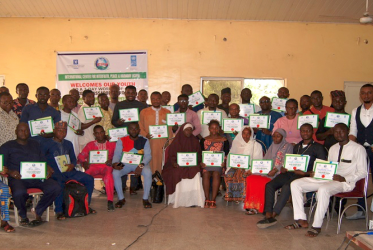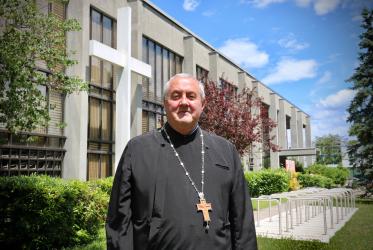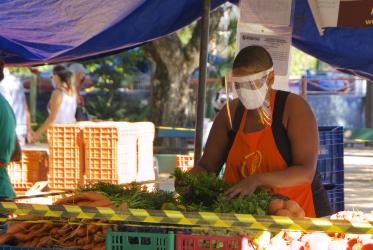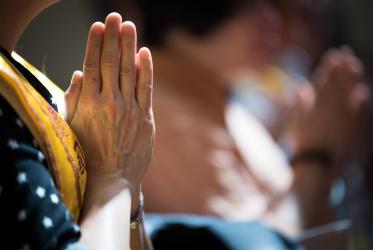Displaying 81 - 100 of 379
How racism and colonialism are exacerbating impacts of climate change
29 September 2021
“Gathering in Grief” mourns Rev. Phumzile Mabizela
07 July 2021
WCC honored with Bridge Builder Award 2021
02 July 2021
Love and Witness
Proclaiming the Peace of the Lord Jesus Christ in a Religiously Plural World
18 January 2021



